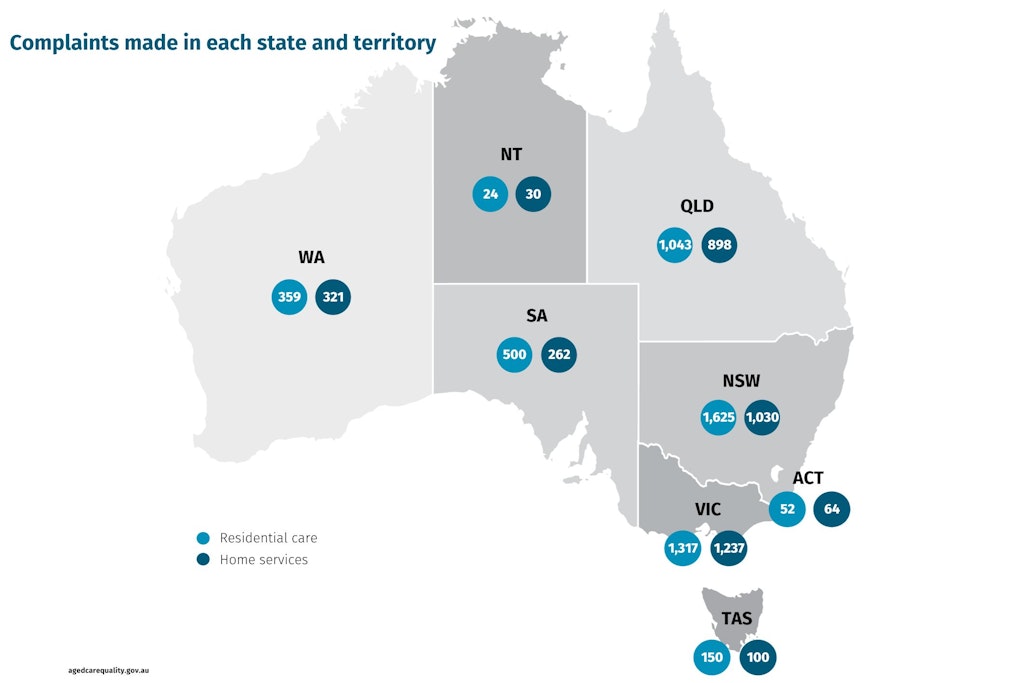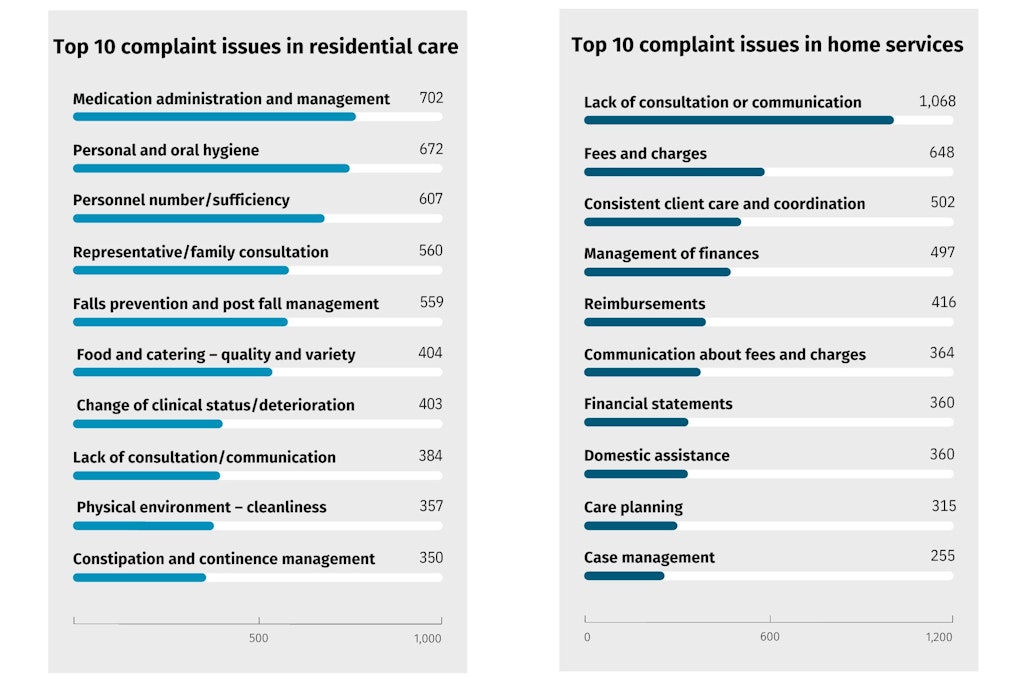Top aged care complaints revealed as the Commission gives providers new insight
Published on 23 November 2023

The Aged Care Quality and Safety Commission has released a new report for aged care providers exploring the complaints received by the Commission in the hope of delivering key insights into good complaint-handling processes. The aim is to then see those learnings applied to and embedded into aged care services and processes.
The key figures
- Just over 5,000 complaints were made to the Commission regarding residential aged care services between July 1 2022 and June 30 2023, a 20% decrease from the previous 12 months
- There was a 5% increase in complaints about home care services with 4,015 made between the same timeframe
- As the States with the highest populations, New South Wales (2,655 total complaints), Victoria (2,554) and Queensland (1,944) saw the most complaints registered
- Almost one-third (855) of residential aged care services had no complaint made, 646 received at least one complaint while 1,135 services were the subject of multiple complaints
The Commission’s newest report, Complaints about aged care services – Insights for providers is the result of another recommendation from the Royal Commission into Aged Care Quality and Safety. There was the recognition that more transparency surrounding complaints was required and additional reporting would place more importance on the individual’s experience of aged care.
“One of our aims is to increase public awareness of – and confidence in – the Commission’s role as the national aged care regulator and our work to protect people receiving aged care from harm, minimise the risk of unsafe or poor quality care, and call out areas for improvement to encourage aged care providers to lift their performance,” explained Janet Anderson PSM, Aged Care Quality and Safety Commissioner.
Complaints viewed as an opportunity for improvement

With more than 9,000 complaints made between July 2022 and June 2023 across residential and home care services, the Commission sees plenty of positivity in the overall 10% reduction from the year prior. The number one complaint across residential care services was medication administration and management, constituting 5% of all complaint issues made, followed by:
- Personal care – personal and oral hygiene
- Personnel – number/sufficiency
- Consultation and communication – representative/family
- Health care – falls prevention and post fall management
- Food and catering – quality and variety
Medication-related complaints are understandably ranked highly due to the breadth of challenges, concerns and issues that can arise in an aged care setting. From the time of receiving medication being delayed through to the consequences of unmanaged pain, there are serious flow-on effects if medication is not properly managed.
As for home care services, lack of consultation or communication was the most frequent complaint issue, accounting for 14.7% of all complaints received by the Commission. This was followed by:
- Financial – fees and charges
- Clinical assessment and service implementation – consistent client care and coordination
- Financial – management of finances
- Financial – reimbursements
- Financial – communication about fees and charges
Communication and financial concerns are recurring themes across home care services with consumers and their representatives frustrated by a lack of communication, unreturned calls and poor notification of incidents, injuries or changes to care. Effective communication is essential to overcoming many of the complaints made.

Overall, 2.6 complaints were made per every 100 consumers, a modest amount. However, it is important to note that the Commission said service providers with no reported complaints could be missing opportunities to improve their services if they have no feedback and complaints system or actively discourage residents from lodging formal complaints.
Early resolution leads to good outcomes
Close to 10,000 complaints were finalised during the last financial year, with the Commission successfully finalising the vast majority of complaints through early resolution. This is a key process the Commission wants to promote amongst providers as proactive resolution results in more satisfied complainants. Steps taken to achieve early resolution include:
- Clarifying the issues and outcomes the person making the complaint is seeking
- Assisting the person making the complaint and the provider to communicate with each other, including facilitating open disclosure
- Helping all parties to the complaint to generate ideas for resolving the issues
- Supporting all parties to reach agreement on the actions to be taken (and when) to address the issues
It’s essential that providers work hard to resolve complaints so individuals are truly satisfied that their issues are heard and addressed. The Commission noted that providers who meet their responsibilities and show accountability in improving the quality of care and services achieve the best outcomes.